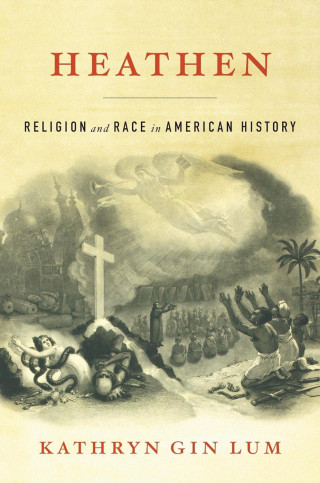Anyone looking for a charter of American Christian nationalism might begin in 1630, the year John Winthrop, the future governor of the Massachusetts Bay Colony, delivered his speech comparing the settlement to a “city upon a hill,” in “covenant” with God, serving as a beacon to “all people.” (The famous phrase came from Jesus’ Sermon on the Mount: “Ye are the light of the world. A city that is set on a hill cannot be hid.”) In the eighteenth century, arguments for American independence were often cast in religious terms. Congregationalists, who structured their churches around ideals of self-governance and free conscience, were particularly influential: Jonathan Mayhew, a Congregational minister in Boston, published a sermon in 1750 in which he denounced the “tyranny and oppression” of Charles I, the former king. (One of Charles’s transgressions: “He authorized a book in favor of sports upon the Lord’s day”; on this front, anyway, America is indisputably less Christian than it used to be.) And in November, 1777, the Continental Congress issued a message of wartime commemoration and gratitude—it is sometimes considered the first Thanksgiving proclamation—which extolled “the Principles of true Liberty, Virtue, and Piety.” There is a certain tension, of course, between the principle of liberty and that of piety: in 1791, the First Amendment to the Constitution prohibited the “establishment of religion” by the new federal government, but Massachusetts did not officially break with the Congregational Church until 1833.
Then, as now, Christian identity in America was often tribal—which is to say, anti-tribal. In a fascinating book called “Heathen,” the religious historian Kathryn Gin Lum suggests that, in many times and places, the divide between Christian and “heathen” was the central divide in American life. The original British colonies were sometimes taken to be efforts to promote the “propagation of the Gospel of Jesus Christ amongst those poor heathen,” as a 1649 act of Parliament declared. The term could justify both exclusion and engagement: the scourge of heathenism was later adduced as a reason to oppose Chinese immigration to California, and to support the annexation of the Hawaiian Islands. But “heathen” is an unstable identity, because it denotes a condition that ought to be cured. A heathen is someone who has not yet been exposed to and converted to Christianity.
Africans and their descendants were sometimes held to be heathens of a peculiar sort, because they were considered to be both a Biblical people and a cursed one: descendants of Canaan, the son of Ham and grandson of Noah. In the Bible, Ham has an ambiguous encounter with a drunk and naked Noah, and is punished with a generational affliction: “Cursed be Canaan; A servant of servants shall he be unto his brethren.” Frederick Douglass, in his autobiography, described this view of Africans as a perversion of the Bible. He wrote that he abhorred what he called “the religion of the South,” but also that he cherished “the pure, peaceable, and impartial Christianity of Christ.” He was making a version of an argument that appears throughout American history: that this country is not truly Christian enough.
